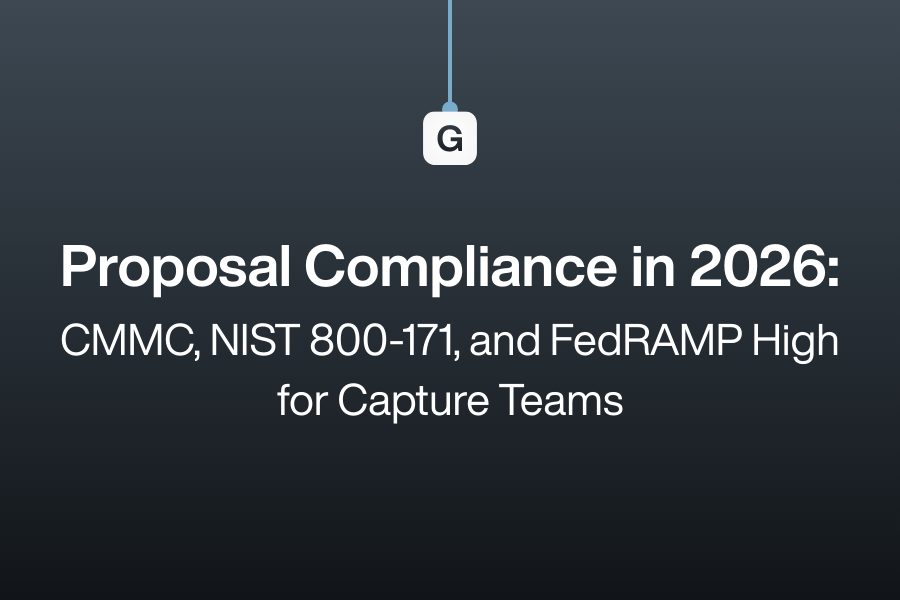Innovation without compliance is a liability. For defense contractors, uploading Controlled Unclassified Information (CUI) into tools that are not FedRAMP High-authorized is not just risky—it may violate contract terms. The requirement is nonnegotiable: only AI and cloud systems listed on the FedRAMP Marketplace may handle CUI in federal environments.
The Requirement: FedRAMP High Is Mandatory for CUI in the Cloud
FedRAMP (Federal Risk and Authorization Management Program) is the U.S. government’s standard for securing cloud services used by federal agencies. If a contractor’s system processes, stores, or transmits CUI in the cloud, that cloud service must be FedRAMP High-authorized (or meet an approved equivalency) at the appropriate impact level.
The key question every contractor must ask before adopting a tool is: Is this service FedRAMP High authorized (or equivalent)?
If not, using it introduces serious compliance, contractual, and legal risk.
The Risks of Non-Compliance
Using non-authorized platforms for CUI exposes contractors to multiple, overlapping risks. These are not theoretical—they can derail contracts and operations.
Legal and Contractual Risks
- DFARS 252.204-7012 / NIST SP 800-171: Contractors are required to safeguard CUI under federal contracts. Failure to meet these controls constitutes a breach.
- False Claims Act (FCA): Certifying compliance while using non-authorized tools may create liability for submitting false claims.
Operational Risks
- FISMA & Agency Oversight: Contractor systems integrated with federal networks must meet security requirements; noncompliance invites audit, discontinuation, or suspension.
- FedRAMP Policy: Federal cloud services must be authorized at the proper impact level before use. Ignoring this can expose compliance gaps and damage reputation.
Programmatic & Policy Risks
- 32 C.F.R. Part 2002 (the CUI Program): Defines baseline protections for CUI across federal agencies. Mishandling CUI can draw investigations or enforcement actions.
Business Consequences
- Loss or nonrenewal of contracts, especially when agencies or primes favor compliant subcontractors.
- Penalties, margin erosion, or contract termination.
- Reduced credibility as a trusted partner in sensitive programs.
A FedRAMP High authorization is not a “nice to have.” It is the line between trusted defense partners and those who put missions — and data — at risk.
Cutting Through the Myths
Many vendors rely on misleading or confusing claims. Contractors must see through them:
- “GovCloud equals compliance.” That is false. AWS GovCloud (or any “GovCloud” offering) is not automatically FedRAMP High authorized; authorization must be verified at the impact level.
- “FedRAMP High is coming soon.” Pending status does not provide compliance. Only an official, listed authorization on the FedRAMP Marketplace counts.
- “On-premises eliminates risk.” On-premises deployments shift the compliance burden (and liability) onto your organization rather than removing it.
The bottom line: if a vendor processes or stores CUI data in the cloud and is not listed on the FedRAMP Marketplace, they are not compliant.
The Reality Check: Enforcement Is Already Underway
The regulatory environment is increasingly active. Noncompliance is no longer theoretical.
- Case in Point: On March 26, 2025, MORSECORP Inc. (MORSE), a defense contractor, agreed to pay $4.6 million to settle allegations under the False Claims Act for failing to comply with cybersecurity obligations, including using a third party email host that lacked FedRAMP Moderate–equivalent protections and failing to fully implement controls from NIST SP 800-171. (Department of Justice)
- CMMC Implementation: The Department of Defense will begin enforcing the Cybersecurity Maturity Model Certification (CMMC) in contracts starting November 10, 2025, with evaluations of contractor compliance with NIST 800-171 and related controls. (U.S. Department of Defense CIO)
- Under CMMC and DFARS, if CUI is handled in cloud environments, the cloud service must be FedRAMP-High authorized. (U.S. Department of Defense CIO)
Imagine integrating an AI platform that processes CUI, then being unable to prove its FedRAMP status during a DoD audit or prime review. The consequences: contract termination, forced rearchitecture, and loss of trust.
How to Protect Your Business Now
You must act proactively. Here is a practical roadmap:
- Validate vendor authorization: Before licensing or integrating any cloud or AI tool, check its listing on the FedRAMP Marketplace.
- Confirm the impact level: Ensure the listed authorization (e.g., Moderate, High) is appropriate for the sensitivity of CUI you will process.
- Request vendor evidence: Ask vendors for system security plans, audit reports, or proof of equivalency where applicable.
- Audit your existing stack: Inventory all cloud and AI tools currently in use. Identify and replace any that lack FedRAMP status or documented equivalency.
- Educate cross-functional teams: Compliance must be understood by leadership, procurement, legal, and IT— not just security personnel.
Leadership Call
Innovation without compliance is not innovation—it is exposure. Contractors who gamble with non-FedRAMP platforms may seem to move fast, but they are building on a foundation of risk.
The question is not whether you can afford FedRAMP High-certified AI platforms. The real question is whether you can afford not to use them: contract losses, legal liability, and reputational damage are simply too steep to gamble on.
FedRAMP authorization is the line. Cross it, and your CUI—and your contracts—are at risk.
Your next step: verify every vendor against the FedRAMP Marketplace—or document a valid, auditable equivalency. If it’s not listed and you have no equivalency, it cannot touch your CUI. Full stop.
References
- U.S. Department of Justice, “Defense Contractor MORSECORP Inc. Agrees to Pay $4.6 Million to Settle Cybersecurity Fraud Allegations” (Mar 26, 2025) (Department of Justice)
Crowell & Moring LLP, “For Better or MORSE: Another Settlement Under DOJ’s Civil Cyber-Fraud Initiative” (Crowell & Moring - Home) - DoD CIO, “FedRAMP Authorization and Equivalency” (PDF) (U.S. Department of Defense CIO)
DoD CIO, “FEDRAMP-Equivalency Cloud Service Providers” memorandum (PDF) (U.S. Department of Defense CIO)
DoD CIO, “CMMC Phase 1 Implementation to Begin Nov 10, 2025” (U.S. Department of Defense CIO)
DoD, “CMMC 101: Program Overview” (PDF) (U.S. Department of Defense CIO) - DoD, “Technical Implementation of CMMC Requirements” (PDF) (U.S. Department of Defense CIO)
- Arnold & Porter, “DOJ’s Civil-Cyber Fraud Initiative Strikes Again: DOD Contractor MORSECORP” (Arnold & Porter)
- InsideDefense, “DoD Memo on FedRAMP Equivalency Requirements for the CMMC Program” (Inside Defense)





